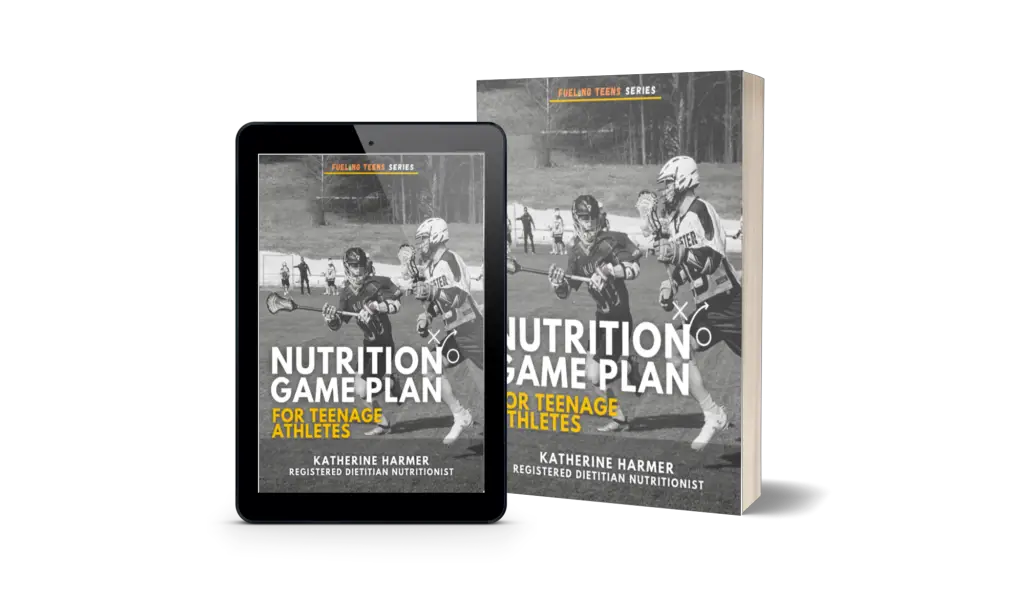Finding and creating a balanced meal plan can be difficult for a growing, hungry teenager, and especially for an active teenage athlete. My FREE meal plan for teenage athletes can help you get started and give your athlete the fuel they need to compete and train at their top potential.
A teen athlete’s diet should consist of a balance of foods from the food groups including healthy grains, a variety of fruits and vegetables, lean proteins, low-fat dairy products, and healthy fats. Sugary and fatty foods and beverages should be limited in an athlete’s diet. Get a more specific plan below.
Keep reading for the free menu plan plus more meal tips created for active teenagers.
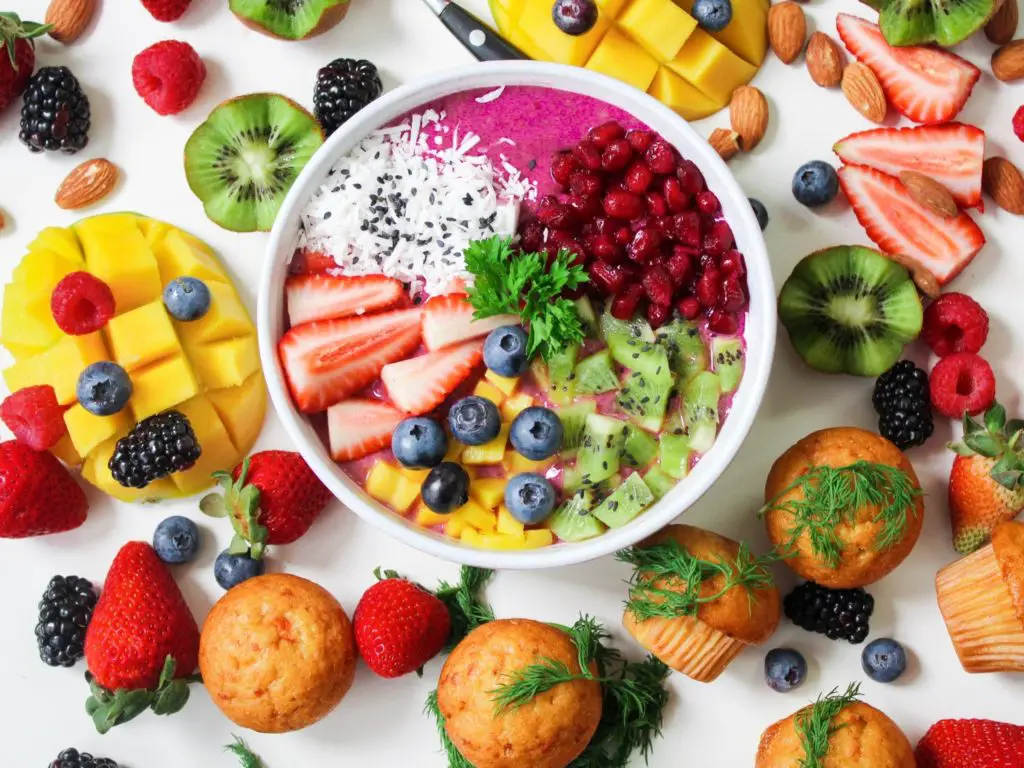
What is the Best Diet for a Teen Athlete?
“Not only do [young athletes] need optimal nutrition for fueling and recovery from training, but they also must meet energy demands of growth and maturation”
Jill Castle, MS, RDN and childhood nutrition expert
This isn’t the time for teenagers to go on diets. Teenagers shouldn’t be on a restrictive diet, especially young athletes. The adolescent years are a time of much growth, maturation, and development. A lot of energy is needed to fuel the growing body, especially the growing body of a young athlete. Adequate nutrition is so important!
This is the age to build healthy eating habits and positive body image. Teenagers should be learning to choose nutrient-rich foods for fuel and enjoy the “sometimes” foods in moderation. They should learn to listen to their body for hunger and fullness cues, instead of focusing on a calorie number or how much other people say they should eat.
Here are some important habits for a teen athlete:
- Do not skip meals
- Focus on carbohydrates for energy. Sports is not the time to worry about low-carb diets.
- Limit fatty and sugary foods, especially fast food and packaged foods
- Always eat something before exercising (within 30 minutes to 3 hours before)
- Stay hydrated with water. Save sports drinks for training sessions or sports lasting more than an hour with heavy sweating.
- Choose an eating plan that focuses on fruits and vegetables, whole grains, low-fat dairy products, and lean protein foods
Check out my newest eBook: Nutrition Game Plan for Teenage Athletes for even more specific tips plus a one-month meal plan for your best sports season ever.
What an Athlete Should Eat in a Day
A teenage athlete needs about 3,000 calories per day depending on several factors such as age, gender, body size, and activity level. Check out my post How Many Calories Should A Teenage Athlete Eat? To get more specific details for individual calorie recommendations.
Broken down, if your active adolescent needs 3,000 calories per day, that’s about 800 calories at each of 3 meals, and 200-300 calories during 2-3 snacks per day.
A balance and variety of foods is the best way to give your teen all the important nutrients needed to fuel and support growth, development, and exercise. The food groups are a great way to look at a balance of nutrients. Using the food groups, here’s about how many servings from each food group per day will equal 3,000 calories.
| Serving Recommendations: | Examples: | |
| Grains | 10 ounces per day | Choose healthy grains such as whole grain bread, tortillas, pasta, crackers, cereal, rice, quinoa, oats. |
| Dairy Products | 3 cups per day | Choose low-fat products such as milk, yogurt, cottage cheese, cheese, etc. Dairy-free products can be a great choice as well for teenagers. Read my Dairy-Free Teens post here! |
| Fruit | 2 1/2 cups per day | Choose a variety of colors, textures, and forms such as fresh, frozen, dried, canned, cooked. |
| Vegetables | 4 cups per day | Choose a variety of colors and forms such as fresh, frozen, canned, dried, cooked, juice. |
| Protein foods | 7 ounces per day | Choose a variety of lean meats, poultry, fish, beans, nuts, seeds, eggs. |
Foods to Limit- Athletes should focus on fueling their bodies with nutrient-rich foods and limiting foods that are high in saturated fat, sodium, or sugar.
Here’s where to find exact serving sizes for each of the food groups: Fruit, Vegetables, Grains, Protein, Dairy. (On the ChooseMyPlate website, click on the plus sign to expand the bottom equivalents table).
FREE Sample Meal Plan for Teenage Athletes
My meal plans are written for males and females at 3,000 calories per day. This may need to be adjusted based on personal recommendations for more or less calories. Again, check here for your specific calorie needs: How Many Calories Should a Teenage Athlete Eat?
This meal plan contains 3 meals at about 800 calories each and 3 snacks between 200-300 calories. Use this meal plan for ideas then experiment to find what works best for your personal style, tolerance, and exercise goals.
I hope you find this helpful! It can be a great starting place for high school athletes. I like to include a variety of favorite foods with healthier spins in an appropriate balance. You don’t need to “diet” during your sports season, just eat smarter and have a nutrition plan.
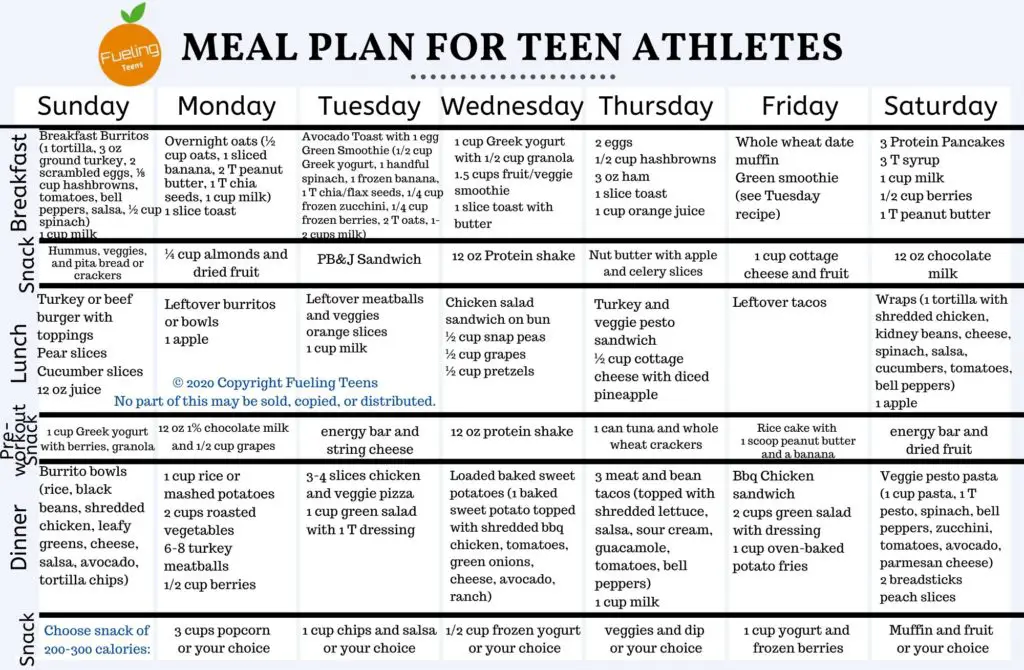
For personal use only. No part of this may be reproduced, sold, copied, or distributed.
This is slightly similar to some of my other meal plans. It can easily be adapted based on the sport and type of athlete and individual recommendations.
Looking for more specific help? Check out my newest ebook: Nutrition Game Plan for Teenage Athletes for a 28-day meal plan, weight tips, supplement tips, snack list, and much much more.
Check out some of my other sport-specific meal plans:
- Nutrition Meal Plan for Teenage Basketball Players
- FREE Meal Plan for High School Football Athletes
- FREE Downloadable Meal Plan for Teen Soccer (Football) Players
- (Contact me if you’re interested in my meal plan for rock climbers. fuelingteens(at)gmail.com)
- (Check back later for more coming soon)
What Should a Teen Athlete Eat?
My meal plan covers a week of meals, so you’ll need to brainstorm more ideas to get you through the season. Here are some more of my favorite foods for each meal and snack. I didn’t list specific amounts because not all athletes will need 3,000 calories per day with 800 calories per meal.
What is a Good Breakfast for a Teenage Athlete?
Teenager athletes should fuel up on breakfasts that focus on healthy carbohydrates, protein, and other nutrient-rich foods. Some of my favorite breakfasts can be simple, quick, and perfect for a teenager to prepare and grab on-the-go.
Don’t let your teenage athlete skip breakfast due to a lack of time before school. Help prepare something the night before that is grab-and-go if needed.
Here are some great breakfast examples:
- Greek yogurt, granola, and berries or bananas
- Protein smoothie, banana, and toast
- Overnight oatmeal with peanut butter, seeds, and fruit
- Green smoothie and a hard-boiled egg and toast
- Whole grain cereal with milk, fruit, and a yogurt
- Eggs, toast, fruit, and milk
- Avocado toast with eggs and fruit
- Whole wheat pancakes/waffles, nut butter, milk or 100% fruit juice
- Omelette with veggies, cheese, and toast
- Whole wheat muffin, slice of ham, fruit
- Whole wheat bagel breakfast sandwich with eggs and ham
- Peanut butter toast, banana, and a glass of milk.
What is a Good Lunch for a Teenage Athlete?
A lunch that focuses on healthy carbohydrates, lean protein, vegetables, and some healthy fats will adequately fuel a teen athlete. Lunch is best if it is prepared at home and brought to school.
School lunch is an option, but may not supply adequate calories or other nutrients for high school athletes. If school lunch is the best option for a teenager, review the menu ahead of time and choose foods that are not fried. You may need to supplement school lunch with additional foods and snacks.
Here are my favorite lunch ideas:
- Sandwich with deli meat, fruit, pretzels, celery
- Chicken and veggie tortilla wrap, fruit
- Grilled chicken sandwich with coleslaw and cucumbers
- Salad with chicken, feta cheese, veggies, dressing, apples, crackers
- Rice bowl with lean beef, beans, mixed veggies
- Meatballs and pasta with sauce, mixed veggies
- Pita with hummus and veggies
- Pasta with meatballs, bread, veggies
- Bean and beef burrito with tomatoes and avocado, veggies
- Veggie pizza, celery, carrots, fruit
What is a Good Dinner for a Teenage Athlete?
Dinner is typically eaten after workouts or competition so it needs to refuel the teen with carbohydrates, protein, fluid, and other important vitamins and minerals. Dinner should be prepared by the parents with help from the athlete.
Dinner ideas for teen athletes:
- Whole wheat pasta with meat sauce, veggies, italian bread
- Taco salad with lots of veggies
- Fish, brown rice, broccoli
- Wraps with shredded meat, beans, salsa, and veggies
- Chicken, sweet potato, and black bean skillet
- Turkey burger and steamed mixed veggies
- Homemade fish tacos and fruit
- Chicken and veggie pizza with side salad
- Pitas with chicken, pesto or hummus, and veggies
- Vegetable and potato soup with breadsticks
- Shredded chicken or pork burritos
- Turkey meatballs, sweet potato mashed potatoes, sauerkraut, snap peas
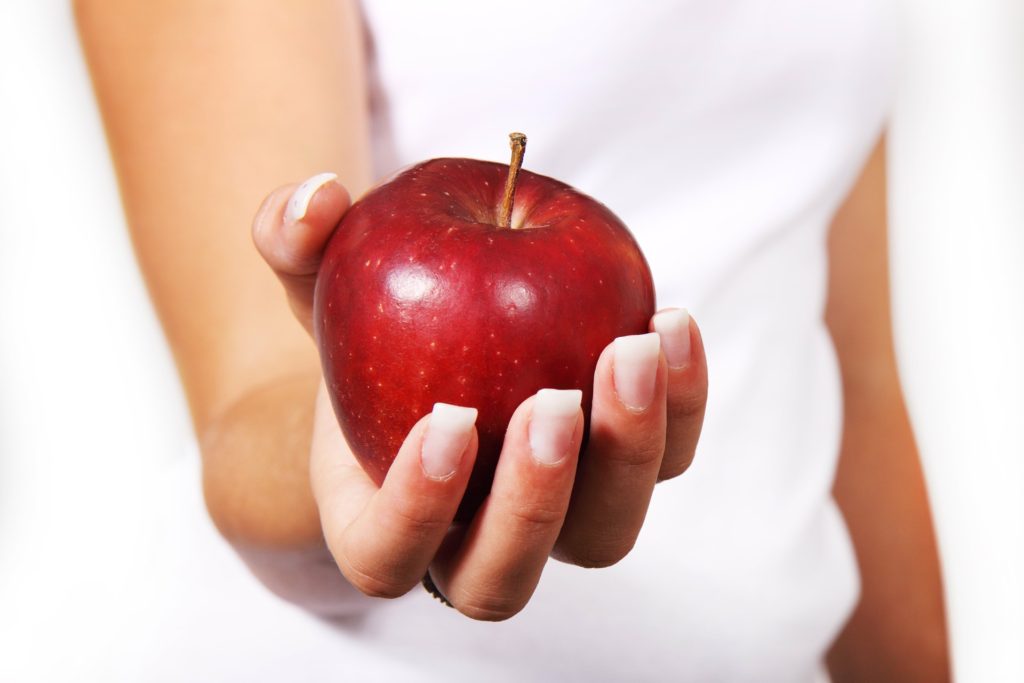
What are Healthy Snacks for an Athlete?
Snacks should be brought to school and eaten during class breaks and before practice. Depending on the individual, some do better than others with certain foods right before exercise. Be attentive to what makes you feel best before practice.
Here are some favorite snack ideas:
- Almonds and fruit
- Banana, celery, or apples with peanut butter
- String cheese and an apple or crackers
- Cheese and whole-wheat crackers
- Dried fruit and trail mix
- Fruit puree pouches and Fig bars
- Pretzels or crackers and peanut butter
- Greek yogurt with granola or fruit
- Energy bar (look for brands low in added sugar and saturated fat)
- Protein shake or smoothie
- Peanut Butter & Jam Sandwich
- Turkey sandwich
- Cottage cheese and fruit
- Cold cereal and milk
- Hummus with whole wheat crackers and veggies (hummus and veggies could bother some individuals during a workout)
- Chocolate milk or low-fat milk
- Banana and a handful of trail mix
- Protein bar
- Check out my post: The Best Pre-Workout Snacks for a Teen Athlete for more ideas
What are Good Snacks for Sports? The best snacks for sports are focused on healthy carbohydrates, some protein, and fluid. They should also be low in fiber (which could cause stomach discomfort during a game), low in fat, and low in sugar. Some great ideas are listed above.
How Many Snacks Should A Teen Athlete Eat Per Day?
Teen athletes need extra calories and nutrients each day to support physical activity. A great time to fit in this extra fuel is during 1-3 snacks per day, usually a mid-morning, afternoon/pre-workout, and post-workout snack.
Teens should have snacks that are around 100-300 calories each. Packaged, highly processed foods from school, restaurants, or vending machines aren’t usually the best options for snacks. Try to bring some good options to school that are ready-to-go.
What Foods Should Athletes Avoid?
Teen athletes should avoid fatty foods, sugary foods, alcohol, artificial sweeteners, and energy drinks, especially during their season, if not always.
The day of competition or right before practice, teen athletes should avoid carbonated beverages, gassy foods (beans, broccoli, cauliflower), spicy foods, high fiber foods, highly processed snacks, excessive caffeine, excessive supplements, and maybe even dairy products (some individuals may be sensitive).
Many of these foods are avoided to limit stomach discomfort during exercise. Know your personal limits by practicing throughout the season and finding your best pre-workout meals and snacks. Check out my post: The Worst Foods to Eat Before Football for some more specific details that can apply to all sports and athletes.
What are the Best Fruits for Teen Athletes?
Fruit is healthy and provides many important nutrients to fuel physical activity and provide major performance benefits. Here’s the list of the best fruits for athletes and recommendations for fruit intake before and after physical activity.
Fruit provides fiber, water, B vitamins, folate, magnesium, vitamin C, potassium, antioxidants, and more micronutrients which are important for peak physical activity and for growing teens. Some of the best fruits for teen athletes are berries, tart cherries, oranges, watermelon, bananas, and dried fruits, but any fruit can be beneficial.
Teenagers need about 2-3 servings of fruit per day. Great ways to fit in fruit during the day is fruit smoothies, cut up fruit for snacks, whole fruit, canned fruit in juice, dried fruit, etc. Check out my post: Best Fruits for Teenage Athletes for more information and ideas for the best fruits pre-workout and post-workout.
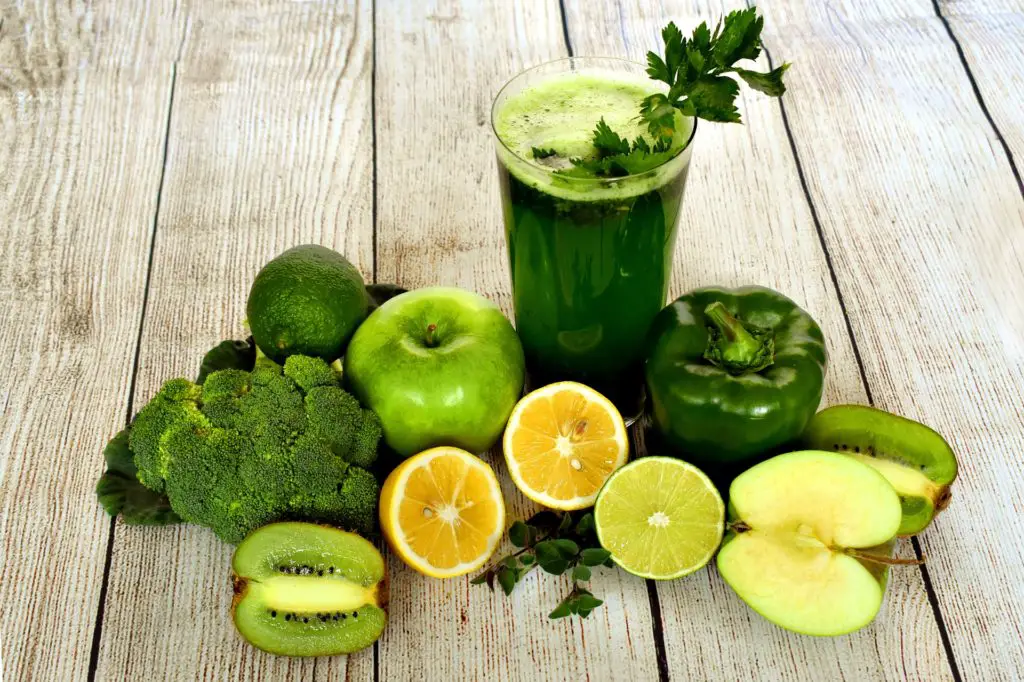
What are the Best Vegetables for Teen Athletes?
Some of the best vegetables that contain important nutrients for teen athletes include spinach, kale, broccoli, bell peppers, sweet potatoes, and celery. Some other great choices that can often count as vegetables are beans and legumes such as chickpeas, lentils, and black beans.
What are the Best Supplements for Teen Athletes?
The most common supplements for high school athletes are whey protein, creatine, and caffeine. However, most high schoolers do not need supplements as they are still growing and developing and supplements could be harmful.
Do not take supplements unless you are working with an experienced high school trainer and your doctor. Check out my posts for more details on who would benefit, when, and what supplements to take: Is Whey Protein Safe for Teenage Athletes? and Is Creatine Safe for High School Athletes?
See Also:
- Nutrition Game Plan for Teenage Athletes
- Free Meal Plan for High School Football Athletes
- Should A Teenager Count Calories?
- Is it OK For Teens to be Dairy-Free?
- Is Whey Protein Safe for Teenage Athletes?
- How Much Should a 16-Year-Old Teen Eat?
Related Questions:
Do Athletes Need More Sugar? Yes athletes need more carbohydrate sugar than non-athletes! An average teenager may need around 2,400 calories per day, which would equal about 45-65% of calories coming from carbohydrates (also known as sugars) or about 270-390 grams or 1,080- 1,560 calories per day coming from sugars.
An athlete needs more energy and nutrients per day, at about 3,000 or more calories. That would equal about 338-488 grams per day or 1,350-1,950 calories per day coming from carbohydrates.
Athletes can get these extra sugars from sources such as whole grains, fruits, low-fat dairy, and starchy vegetables. Athletes may occasionally need quick, easily-digestible sugars during a long, intense competition and this may come from carbohydrate drinks or bars of simple sugars.
As for added sugars/sugar foods, the recommendations for all teenagers is no more than 25 grams of added sugar per day, which is equal to 6 teaspoons. Most teenagers get too much added sugar.
What are the Best Foods for a Teenager to Eat? The best foods for a teenager to implement into their diets is whole grains, lean proteins, healthy fats, and fruits and vegetables. A variety of these foods is best!
A focus on whole, plant-foods with some meat is extremely beneficial for a teenager, with less of a focus on packaged, highly-processed foods. Check out my meal plan above for some great ideas.
References
- Academy of Nutrition and Dietetics. “8 Gameday Nutrition Tips for Young Athletes”. Written by Jill Castle, MS, RDN. Published October 25, 2017. Accessed at: https://www.eatright.org/fitness/sports-and-performance/tips-for-athletes/gameday-nutrition-tips-for-young-athletes
By Katherine Harmer, RDN
Fueling Teens is a participant in the Amazon Services LLC Associates Program, an affiliate advertising program designed to provide a means for sites to earn advertising fees by advertising and linking to Amazon.com. We also participate in other affiliate programs which compensate us for referring traffic.

